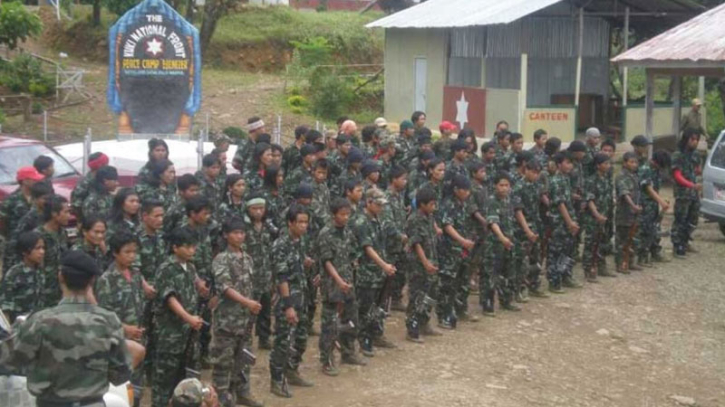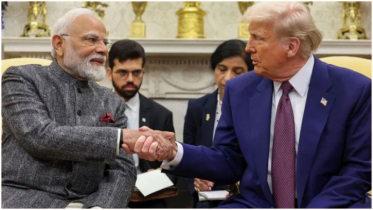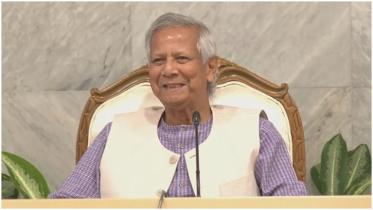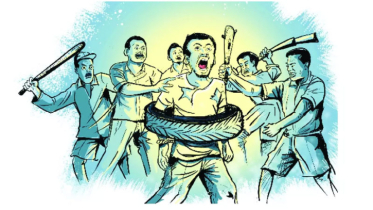KNF separatist movement can hamper India-Bangladesh ties

Several years, the Kuki-Chin National Front (KNF) conducts its campaigns behind the doors. But, after launching a much-needed raid by Bangladesh Army regarding Islamist militias and their suspected local allies in Chittagong Hill Tracks (CHT), KNF's notoriety come to the surface. As a result of needless panic, people in these areas compelled to abandon their homeland; roughly 300 Bangladeshi sheltered in Mizoram by the end of 2022. Who are exactly this KNF? What do they want? How will they influence Bangladesh-India's historic friendship? Answers remain crucial, especially for Mizoram, who hosted the KNF.
KNF consists of six distinct minority groups, including the Bom, Pankhos, Lusai, Guni, Mro, and Khyang from Bandarban and Rangamati districts. They appeared for the first time in April of 2022, on Facebook as they openly advocated for a separate state that encompassed the 9 Upazilas in Bandarban and Khagrachari.KNF claims themselves as the initial resident of the CHT. Additionally, they view the Chakma, Marma, and Tripura people as outsiders who are a part of the Burmese and Indian ethnic groupings. That's why they look down on military organisations like the JSS and the UPDF in such disgust.
Their desire to have the CHT be regarded as an entirely separate and autonomous region for them. The organization is headed by Nathan Bom, de facto head of the Bom society and postgraduate of University of Dhaka. With a disguise of non-governmental organization, Nathan Bom has been soliciting funds. Since its inception, the group has operated transparently to demonstrate its efficacy openly.
Since its inception, the KNF has been an ongoing topic of controversy and legitimacy. Nothing is clear about their objectives, funding strategies. The existing armed group is obviously triggering unrest in the CHT and disrupting regional stability and violating the 1997 peace accord. Initial impression among the public is unfavorable since they were unwilling to make their demands clear to the government or undertake any attempt to negotiate. As well as violating the Peace Treaty Act of 1997, their belligerent nationalism has lately shattered regional peace. The execution of the peace accord is being challenged.
According to the KNF, there are several ethnic communities beyond the rest of the groups. It's true that not all hill towns have the same amenities or living standards offered by the government. Although progress is sluggish throughout the hills, Bangladesh government is attempting to boost CHT residents' quality of life. However, progress cannot be made overnight. The trajectory of Bangladesh's hill villages is shifting in tandem with the country's rapid development. From their side, they are rebelling because of the non-implementation of the treaty, whereas their rebellion is a big factor that is slugging the implementation.
They claimed that, they are being neglected. They wish equality. Again, their leader claimed, Bangladesh displays a one-eyed stance regarding their well-being. However, if Bangladesh has neglected CHT people, why are other minority groups remain silent? Kuki-Chin-Mizo makes up less than 10% of the minority population.
Another source of controversy is the rebels' preferred fund-raising approach. Bangladesh's national security is at stake amid the illicit trade of arms and training in mountains to extremist terrorist organization for cash. Such kind of threatening activities call into doubt on the legitimacy of their organization. It's unclear what the organisation desires. They demand a separate homeland. Then what? Neither oil nor coal has been discovered in CHT. How long can it survive? If the organisation had a feasible aim, it could have presented demands and started negotiating. Roundtable talks with the government may have assisted them achieve their goal. They instead become a rebellion outfit that concerns CHT security. They'll terrorise the country if they're not stopped.
There arises question, do they really speak for their ethnic group's rights, or they are conspiring? Their actions are obviously dubious, and their primary goal is still a mystery. So, instead of continuing to live a subversive conduct, they must get back to their normal lives in order to uphold Bangladesh's integrity as Bangladeshis.
Historically, Kuki-Chin-Mizo people shares ancestry among the Mizo tribes of neighboring Myanmar and India. The Chin of Myanmar, the Mizo of Mizoram, and the Kuki of Bangladesh,all of them, came from similar ancestors. This Kuki ethnic group also includes the Mizo Hills' indigenous population.
However, there is a speculation of Mizoram's insurgency groups supporting KNF. While recently an organization representing the Chin-Kuki-Mizo populations sheltering in India asks for Indian intervention in Bangladesh. This speculation and intervention can fatally wound Bangladesh- India long-lasting friendship and trading partnership. The landlocked Northeast Indian state Mizoram shares a 318-kilometer border with Bangladesh.
In addition, Bangladesh and India had agreed upon construct a 660 meters bridge over the river Khawthlangtuipui (also known as the Karnaphuli) which flows through Mizoram on the border between their two countries, in order to facilitate bilateral trade with Mizoram.
India, Bangladesh's most trusted allay and largest trading partner shares multiple variables; including geography, history, politics, and economy, have influenced the nature of the relationship between the two countries. There are several elements of the conflict in the CHT that can influence the relationship between Bangladesh and India. Regional security and peace have been impacted by the conflict, which has exacerbated existing tensions between the two countries. India's seven northeastern provinces are currently enjoying a wave of serene and prosperity, possible for Bangladesh's rigorous zero-tolerance policy toward insurgency. The volume of commercial transactions and investments in finance is continuously growing. The statement as "Bangladesh is not a hub of terrorists" and "zero tolerance" is being maintained against terrorism has made this possible.
It is crucial for all of us to come to the realization - a political or ethnic dispute cannot be settled using force. Since the beginning, Bangladesh government has focused on preserving internal and regional stability; it would be a smart move to negotiate with Bangladesh government. Consequently, they might be dragging in peril on themselves, if they do not take any attempt to submit their points of view.
Source: The Daily Observer
.png)




